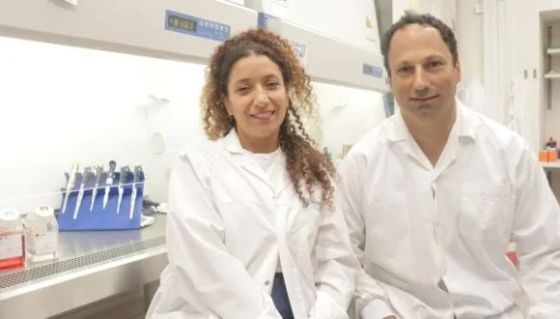
TAU Breakthrough Reveals Mechanism That Eliminates Tumors
Researchers identified a mechanism that eliminates tumors—even those resistant to immunotherapy.
A technological breakthrough by medical researchers at Tel Aviv University enabled the discovery of a cancer mechanism that prevents the immune system from attacking tumors. The researchers were surprised to find that reversing this mechanism stimulates the immune system to fight the cancer cells, even in types of cancer considered resistant to prevailing forms of immunotherapy. The breakthrough was led by Prof. Carmit Levy, Prof. Yaron Carmi, and PhD student Avishai Maliah from TAU’s Faculty of Medical and Health Sciences. The paper was published in the leading journal Nature Communications.
Prof. Levy: “It all happened by coincidence. My lab studies both cancer and the effects of ultraviolet (UV) radiation from the sun on our skin and body – both of which are known to suppress the immune system. Cancer suppresses approaching immune cells and solar radiation suppresses the skin’s immune system. While in most cases, we cancer researchers worldwide focus on the tumor and look for mechanisms by which cancer inhibits the immune system, here we proposed a different approach: investigating how UV exposure suppresses the immune system and applying our findings to cancer. The discovery of a mechanism that inhibits the immune system opens new paths for innovative therapies”.
What Surprising Findings Emerged from the Research?
Prof. Levy adds: “With this idea in mind, I asked my colleague Prof. Yaron Carmi, a global expert on the immune system, to join the study. Avishai Maliah, an MD/PhD candidate in my lab, led the project. The first stage was a comprehensive investigation of changes in the skin induced by exposure to UV, using a mouse model. Avishai examined the behavior of dozens of proteins post-UV exposure and surprisingly discovered a significant rise in the level of a relatively unexplored protein called Ly6a. This unexpected finding led us to investigate further, to understand the protein function and whether it is involved in the immune suppression process”.
Prof. Carmi explains: “It’s important to understand a basic aspect of the immune system’s function. Our natural immune system is very efficient and very powerful, but it contains quite a few brakes and controls, to prevent overactivity that can cause autoimmune diseases – in which the body attacks itself. When our skin is exposed to UV radiation from the sun, our immune system responds immediately: blood vessels expand, DNA is repaired wherever possible, and cells with mutations are identified and removed. At the same time, a strong control system with numerous brakes is also activated to prevent overactivity”.
How Does UV Exposure Affect Immune Response?
Prof. Levy: “The use of sunlight to suppress autoimmune diseases of the skin – when the skin’s immune system overreacts – has been known for years. Phototherapy is basically the application of UV radiation to treat patients with autoimmune diseases, such as psoriasis, vitiligo and more, because ultimately UV suppresses the skin’s immune system”.
Avishai Maliah: “We found that after exposure to UV radiation, the immune system’s T cells – that play a critical role in fighting cancer – begin to express high levels of the protein Ly6a. We suspected that Ly6a serves as a brake through which UV inhibits the immune system, and that by releasing this brake, optimal activation of the immune system might be resumed”.
Prof. Levy: “We were surprised to discover that this protein, Ly6a, is also overexpressed in cancer tumors – apparently inhibiting T cells. Having found this in two types of cancer, melanoma skin cancer and colon cancer, we have reason to believe that the same thing happens in other cancers as well. Evidently, we have discovered a general mechanism through which cancer tumors desensitize the immune system. Avishai treated cancer with Ly6a antibodies, and amazingly the tumors were significantly reduced. Moreover, cancers resistant to known treatments reacted substantially to Ly6a antibodies”. The new discovery can have practical implications in immunotherapy – treating cancer by enhancing the response of the immune system.
Prof. Carmi: “Immunotherapy has revolutionized the treatment of cancer. However, about 50% of the patients do not respond to the currently prevailing treatment – the protein PD1. We discovered a new protein, Ly6a, and found that its antibody eradicated tumors in our model animals – even those resistant to PD1 therapy. We are currently working to translate our findings into a drug for human cancer patients, hoping to offer an effective new treatment”.
